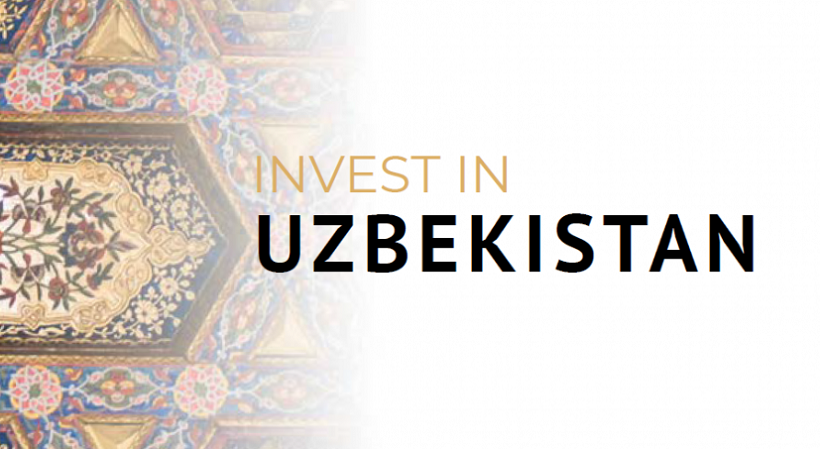Key Sectors Attracting Foreign Investment in Uzbekistan

The Uzbekistan-2030 Strategy sets the goal of increasing the country’s gross domestic product to $160 billion and per capita income to $4,000. This cannot be achieved through the domestic market alone; the main thing is to actively attract foreign investment and increase exports.
The Tashkent International Investment Forum is of great importance in this work. In May 2024, the III TIIF was held in Tashkent, which became a significant event for the economy of Uzbekistan and the international investment community. The main goal of the forum was to increase the inflow of foreign investment and promote economic cooperation between Uzbekistan and other countries.
The forum attracted representatives of business, investors, government agencies and international organizations, which allowed for dialogue and the conclusion of major investment agreements. In recent years, Uzbekistan has demonstrated significant growth in attracting investment, and the forum was an important step in this direction.
In his welcoming speech, the head of state noted that Uzbekistan has managed to attract over $60 billion in foreign investment in recent years. Of the total amount, about $14 billion came from international financial institutions. They are directed to the social and infrastructure sectors.
The forum is incredibly popular – the III International Investment Forum brought together more than 2.5 thousand participants from 93 countries, providing a platform for global dialogue and exchange of best practices in the investment sphere.
It is important to note that the Forum attracted the attention of international media, and was covered by more than 110 foreign publications from 30 countries, including the world’s leading media CNN, Euronews, London Post and Associated Press.
One of the key events of the forum was the presentation of regional energy projects (construction of Kambarata HPP-1 and Yavan HPP) to foreign investors. The presentation was held with the participation of the Prime Ministers of the Republic of Uzbekistan and the Kyrgyz Republic, which emphasized the importance of these projects for the entire region.
Following the TIIF, agreements worth a total of $26.6 billion were signed, which indicates the high investment attractiveness of Uzbekistan and the success of the forum. For comparison, in 2022, 167 documents worth $11 billion were signed at TIIF, which demonstrates a significant increase in investment interest in the country.
In particular, agreements were reached on the implementation of the following major investment projects:
– Saudi Arabia’s Data Volt will build $1 billion in urban infrastructure in New Tashkent and create a $3 billion green technology “data center.”
– Saudi Arabia’s Acwa Power is implementing projects to build a 5 GW wind power plant in the Republic of Karakalpakstan and create 2 GW of electricity storage facilities for a total of US$6.2 billion.
– UAE company Amea Power will implement a project to build a 1000 MW wind power plant in the Republic of Karakalpakstan worth US$1.1 billion.
– The Saudi Tabrid company will begin modernizing the heating system in Nukus, Fergana and Kuvasay for a total of 750 million US dollars.
– The Egyptian company “Nil Shugar” will be engaged in the cultivation of sugar beets and the production of sugar in the Jizzakh region for the amount of 500 million US dollars.
– The Chinese company “Shanghai Knud International” is implementing a project for the production of textile and clothing products in the Namangan region worth 205 million US dollars.
– The company “Wilmar International” (Singapore) will produce food products and confectionery in the Tashkent region worth $200 million US dollars.
In addition, agreements were reached at the forum with a number of the world’s largest companies, such as Orascom Investment (Egypt), Bonafarm Grup (Hungary), Sayar (USA), Goldwind, Sinoma (China), Sam Yapi (Turkey), Pasha Development (Azerbaijan), Lasselsberger (Austria), Petrosat Chexelsoton (Iran) on the implementation of new investment projects worth $6.6 billion.
The event included a rich program of panel sessions, discussions, business breakfasts and round tables, where the most important aspects of economic development were discussed. The central theme was the role of the state, investors and entrepreneurs in supporting small and medium-sized businesses.
At the session on combating corruption, experts emphasized that effective combating corruption and crime in the economy is a key factor in improving the investment climate. They noted that creating a safe and transparent business environment plays an important role in this process.
“A successful fight against corruption requires a comprehensive approach, including strengthening legislation and increasing the transparency of government actions,” said Akmal Burkhanov, Director of the Anti-Corruption Agency of the Republic of Uzbekistan.
The session on retail highlighted the main challenges and opportunities in the industry. Participants expressed their opinion on the need to improve tax legislation and simplify import procedures. They also noted the importance of creating conditions for the successful adaptation of new brands to the market.
“Thanks to the decree on reducing customs duties, we were able to set fair prices, as in the UK and Kazakhstan,” shared Ilya Lyapustin, Sales and Marketing Director of Tashkent City Mall.
The Women’s Entrepreneurship Business Breakfast highlighted the significant impact that women entrepreneurs have on society. Speakers shared inspiring examples and strategies for balancing profitability and social responsibility.
The main focus was on attracting foreign investment through residence permit programs.
“Over the past few years, Uzbekistan has established itself as an attractive destination for global investors due to its openness to cooperation and prospects in the real estate sector,” said Akram Mukhamatkulov, a representative of Henley&Partners.
The round table “Supply Chains and Resilience: Finding Balance in the Face of Uncertainty” discussed the challenges and strategies for ensuring the resilience of global supply chains.
“Turkey and Uzbekistan have a strategic partnership and we can significantly strengthen cooperation by working together,” said Turkish Deputy Trade Minister Sezay Ucarmak.
The experts also stressed the importance of integrating digital technologies into investment strategies. They noted that digitalization is not the future, but already today, and plays a key role in accelerating investment processes and increasing transparency.
At the pitch session “IT-PARK Uzbekistan: New Development Prospects” plans were presented to transform Uzbekistan into a regional center of information technology by 2030.
Uzbek Minister of Digital Technologies Sherzod Shermatov spoke about the significance of recent investments. “Yesterday we witnessed an important event – the start of construction of the $5 billion Data Volt green data center, which is a major foreign direct investment project. We are creating a favorable environment for IT companies and launching the Zero Risk program to cover all risks associated with opening and running offices in Uzbekistan,” he said.
At a roundtable discussion on “Connections: Reviving the Great Silk Road,” international experts and government officials explored opportunities to expand connections, economic cooperation, and cultural exchange along the ancient Silk Road routes.
At the round table on the topic of “Integrated urban development: high-quality investments, comfort for the environment and people”, leading urbanists, architects and representatives of business circles discussed approaches to the development of the city of Tashkent. In particular, Managing Director and Senior Partner of BCG Vladislav Butenko noted the importance of integrating innovative solutions into urban development to achieve sustainable urban development. He emphasized that it is necessary to take into account both economic and social aspects in comprehensive planning, ensuring a balance between them.
The forum played an important role in attracting investments for various ministries and regions of Uzbekistan. The signed agreements testify to the development of key sectors such as industry, energy, pharmaceuticals and automobile manufacturing.
One of the main achievements of the forum was the agreement between the Ministry of Digital Technologies, the Ministry of Energy and the IT company Data Volt on the construction of a data center based on “green” technologies. Experts noted the importance of such projects for Uzbekistan. The signing ceremony was attended by the Minister of Investments, Industry and Trade Laziz Kudratov and the Director of Data Volt Rajit Nanda.
The III International Investment Forum in Tashkent has ended, but the planned initiatives and signed agreements promise active work to attract investment and ensure sustainable development. Uzbekistan has once again confirmed its role as a strategic partner in the international arena, attracting the attention of global investors and promoting economic growth in the region.


